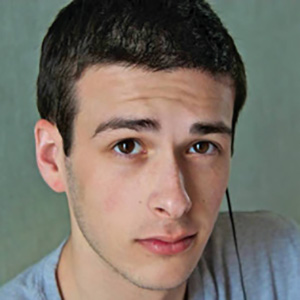
As a 20-year-old Modern Orthodox Englewood resident, my life has been spent in the so-called “Jewish bubble.” My early education was spent at The Moriah School, followed by The Frisch School, and the bubble sheltered me from the realities of anti-Semitism. Sure, I had heard about anti-Semitic current events, but they never hit close to home. Until this past Thursday night.
This summer, I am one of the interns in the Simon Wiesenthal Center’s Government Advocacy Internship Program. In addition to working in public officials’ offices, the interns in the program hear from a variety
of speakers, discussing the various critical aspects of community advocacy and activism. Last Thursday, we were offered a unique opportunity to attend a city council meeting in the municipality of Mahwah where there has been an ongoing battle regarding the placement of an eruv. Although the utility poles on which the eruv stands are owned by the utility company, and those facilitating its construction received all of the necessary permits, there has been much debate by the township as to the legality of the eruv, as well as its impact on residents of Mahwah as a whole. With this being a hot-button issue, our program head—Michael Cohen—thought it would be a unique opportunity to experience first-hand a serious issue affecting the Jewish community in real time to better understand the critical need for the advocacy skills being taught to us in the internship program.
Although a standard city council meeting averages a mere 15 attendees, this meeting had hundreds, all eager to weigh in on the eruv and “these people” that it would likely bring. After the council concluded their formal discussion, the floor was opened to the public, yet there were restrictions on what could be said: There was to be no mention of the eruv, or of any specific religious group. Though there were murmurs of protest, the public began to weigh in on the issue at hand. These restrictions caught me by surprise, having throughout my life been taught about our First Amendment rights and free speech.
Since the eruv couldn’t be explicitly referred to by name, the Mahwah residents found ways to circumvent the restriction referring to “outsiders” and violations of the local sign ordinance laws under which the eruv is being protested, as well as the overcrowding of Mahwah’s parks. As the night went on, speaker after speaker described how they were afraid of “these people” who were coming to their parks and—as one woman said—knocking on doors and “asking to buy [their] homes for cash.” The message of the night seemed to be the following: “There are foreign people coming into our town, and we want something to be done about it.” Again, the language of the comments was restricted from specifically referencing the eruv, as the council insisted they wanted to avoid any litigation. Despite the limitations, some speakers who are residents of the township did “slip up,” one even demanding to know “how the heck ‘they’ got those poles up anyway.” Finally, after many local residents made their remarks, Cohen got up to make some comments of his own.
Before he was able to make his first point, the council began to intervene. Upon stating that he was a representative of the Simon Wiesenthal Center, the council told Cohen that he was violating the public comment rules by mentioning a specific religion. And though he explained that the Wiesenthal Center was an institution that promoted tolerance as a Jewish Human rights organization—not a religious organization—he was shot down once again, ultimately spending his five minutes of speaking time arguing back and forth. In those five minutes, the council refused to allow Cohen to convey a even a single substantive point. Not one.
Following Cohen was Holocaust survivor Sammy Steigman, who began by explaining his background as a survivor, and the anti-Semitism he had faced. Rather than respectfully asking him to only discuss the “sign ordinance” issue, the council rudely told him that he was breaking the rules of public comments, while several people from the crowd yelled at him to stop speaking. As with Cohen, Steigman was unable to get his points out, and his time, too, ran out. A few others attempted to speak in defense of the eruv, but all were mostly silenced by the council’s supposed fear of litigation.
Before that meeting, these kinds of events were only in my imagination. I never believed that this town—only 30 minutes away—could harbor such opinions. All this talk of “them” and “these strangers” was eye-opening to me. While I don’t think that every person who spoke out against the eruv is objectively an anti-Semite, the whole situation certainly left a bad taste in my mouth. After all, the eruv is near invisible, blending in with the utility poles upon which it is placed. The sudden passionate anger regarding a supposed violation of a sign ordinance has many raising eyebrows as to the true nature of people’s qualms with the eruv.
Despite what we may hear in the news, anti-Semitism is still alive and well. It may not come in the form of pogroms, but it still lurks in the shadows. Only by leaving the comfort of the bubble can people my age truly understand what our community is facing. I didn’t need to fly to the Middle East to see these kinds of things; I only had to drive down the highway. By educating ourselves about the adversity our community is up against, we can build better lives for ourselves, as well as future generations. Programs such as the Simon Wiesenthal Center Government Advocacy Internship Program are critical to opening up our eyes to these harsh realities, and I now see the necessity of being a part of a program that will teach individuals like myself how to effectively stand up for our community.
By Justin Feldman













